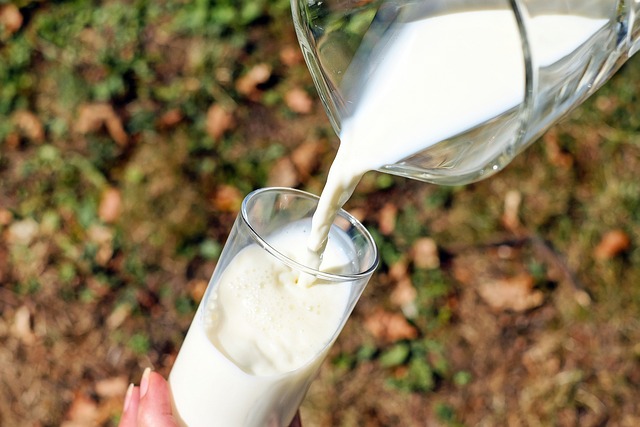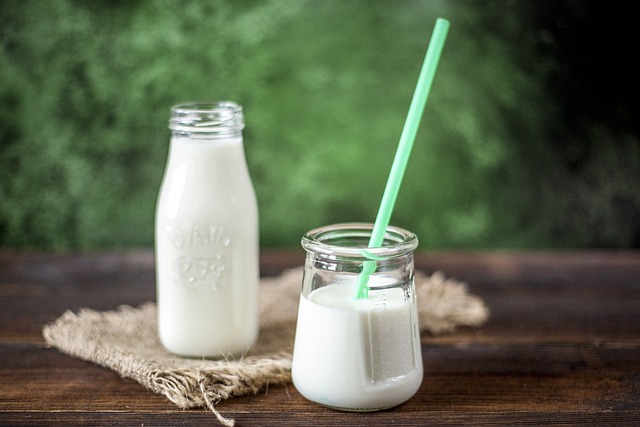Milk has transcended its status as a dietary staple, symbolizing nourishment and vitality. It is cherished for its exceptional nutritional value and comprehensive health benefits. Primarily sourced from cows, this elixir embodies a wealth of essential nutrients crucial for overall well-being. Beyond conventional nutrition, milk’s advantages span diverse realms, including bone strengthening, muscle development, weight management, and energy revitalization. Packed with vital nutrients like calcium, protein, vitamins, and minerals, milk seamlessly integrates into various culinary applications, serving as a refreshing beverage, cereal enhancer, or culinary ingredient. Its multifaceted benefits not only underscore a pivotal role in dietary balance but also enhance the quality of life for its enthusiasts.
What Is The Best Time To Drink Milk Every Day?

Nutritionists emphasize the nuanced benefits of warm milk before bedtime. Thus attributing its efficacy to melatonin production, which is crucial for regulating sleep cycles. Additionally, many doctors highlighted milk’s role in maintaining satiety and preventing overeating throughout the day, promoting a balanced diet.
Benefits Of Adding Milk To Your Diet

Eight-ounce of whole milk in a cup comprises 276 mg of calcium. Which, when taken regularly, offers a whole lot of benefits.
Boost Your Immune System
Strengthen your immune system by drinking more milk. Packed with immune-boosting nutrients like protein, vitamin D, vitamin A, zinc, and more, milk is a nutrient-rich choice.
Improves Teeth Health
Boost bone and teeth health while reducing stress fractures by increasing calcium intake. Enjoy milk, cheese, yogurt, and other dairy outputs for an effortless way to incorporate more calcium into your diet.
Aids Digestive Health
Boost your diet by prioritizing digestive health. Aim for three daily dairy servings, rich in nutrients aiding digestion. Also, vitamin D in milk enhances calcium absorption, B vitamins aid in energy conversion, and selenium stabilizes metabolism. Thus sufficing for the many benefits of adding milk to your diet.
Helps One To Relax
Consider drinking warm milk before going to bed. The contents in milk – tryptophan, trigger melatonin for sleep, and serotonin help with mood uplift. High-quality proteins like whey and casein in milk keep you feeling full, preventing bedtime hunger.
Strengthens Heart Health
Incorporating low-fat or fat-free dairy lowers risks of heart disease, type 2 diabetes, and blood pressure, supported by multiple studies. This underscores dairy’s importance for heart health and reveals mechanisms for cardioprotective effects, informing preventive healthcare strategies.
Improves Skin And Hair Health
Milk offers abundant benefits for skin and hair, with its high-quality protein, vitamin A, and zinc contents. Thus promoting strength and radiance! Casein and whey proteins strengthen hair, while calcium fosters growth and prevents loss. Vitamin D aids hair follicle development, and milk’s protein supports skin suppleness. Nonetheless, milk is widely used in homemade beauty masks for its moisturizing and purifying effects, enhancing skin texture and brightness.
Helps Balance Out Emotional And Mental Health
Milk is a nutritious diet rich in vitamins D, C, and B, supporting both digestive and brain health. Vitamin D aids in serotonin production, which is linked to mood regulation, hunger, and sleep. Increasing intake of vitamin D-rich foods like fish, milk, and tofu further supports overall well-being.
Post-Exercise Recovery
The benefits of adding milk to your diet lead to the intake of high-quality protein for muscle development and carbohydrates to refuel muscles. Also, it helps add essential fluids and electrolytes like calcium, potassium, magnesium, and sodium for rehydration.
Beneficial During Pregnancy
Milk’s benefits transcend postnatal nourishment, impacting prenatal health profoundly. Laden with essential nutrients, including iodine, it crucially supports fetal bone and brain development. Milk is the powerhouse of nutrition, epitomizing a holistic approach to maternal and infant well-being playing a pivotal role in prenatal nutrition and early childhood development.
Osteoporosis
During the transformative ages of 30 to 50, women undergo a critical phase of bone accrual to prepare for menopausal bone loss. Prioritizing optimal calcium intake becomes paramount during this transition phase as a robust defense against bone demineralization and osteoporosis. This strategic dietary approach not only enhances skeletal resilience but also embodies a holistic commitment to women’s long-term well-being. Thus reflecting a proactive ethos essential for navigating health challenges with resilience.
Milk stands as a symbol of nourishment and vitality, offering exceptional nutritional value and comprehensive health benefits. From supporting bone health to boosting immune function and aiding in post-workout recovery, milk plays a crucial role in promoting overall well-being at every stage of life. With its abundance of essential nutrients and versatility in culinary applications, incorporating dairy into one’s diet can lead to significant improvements in health and vitality. Enjoy it as a warm bedtime beverage, or integrate it into post-exercise routines. Milk, a source of calcium for bone strength, continues to prove its significance as a cornerstone of a balanced and nourishing diet.



